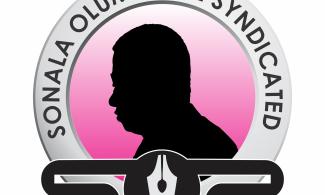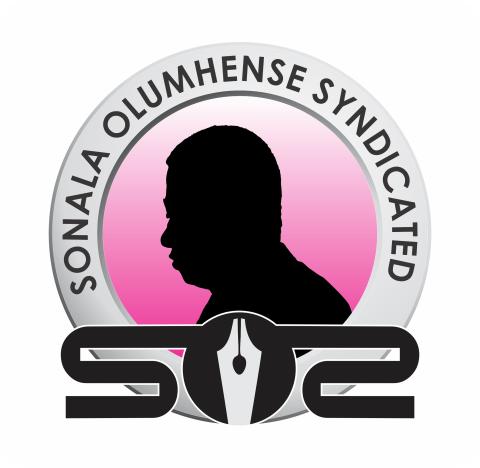
Date: End-September, 2015
Date: End-September, 2015
Milestone: Start of the fifth month of Muhammadu Buhari’s “Change” era.

The week commences with the Nigerian leader’s appearance at the 70th United Nations General Assembly. It will be his first as an elected leader, and he is expected to be received with respect.
Buhari arrives at the UN at an important moment: the end of the Millennium Development Goals (MDGs) that Nigeria made such a historic failure of, and the commencement of the Sustainable Development Goals (SDGs) that will replace—and hopefully correct—it.
As one who has advocated that Buhari probe projects, not persons, I believe the MDGs are one of the most important projects to be investigated. That would be in the best interest of Nigeria, to set the stage for successful implementation of the SDGs, but it would also be in the best interest of Buhari, because it will help him strengthen our management practices.
Tomorrow, he will speak at the UN General Debate, where he may make an impact no Nigerian leader has in a long time. When he speaks, he must remember that exactly one year from now, all things being well, he will need to be talking about achievement, not promise.
Nonetheless, Buhari will return to Nigeria the following day, in time for Nigeria’s National Day two days later.
Two significant things are guaranteed in the three days before October 1. The first is that he will submit to the National Assembly a list of his Ministerial nominees.
The second is that he will have a chance to obtain from a veteran his first full glimpse into the quality of the existing anti-corruption terrain: the Economic and Financial Crimes Commission (EFCC), which is scheduled to submit its annual report to the National Assembly by Wednesday.
That report should be at the top of President Buhari’s reading list this week, should it be submitted. The commission has usually avoided writing one. Rumors have it that when it was allegedly submitted during the steal-as-much-as-you-can years, it was in the form of an overview of a couple of pages.
That manufactured draft would then be smuggled into the National Assembly, where it was kept out of sight by its complicit leadership.
In other words, the EFCC knew the only battle it was doing with economic and financial crime in Nigeria was keeping a lid on it, a job that with the legislature’s help was laughably easy.
The voters changed that hoodwinking last March when they hired Buhari, but the EFCC is however nothing if not adaptable, and it has taken advantage of Buhari’s recent arrival to run around the country beating the crime-fighter drum.
Perhaps it really had been fighting corruption all these years but was simply not getting the credit. Perhaps it was “malicious” Nigerians such as this writer who were misrepresenting the work of the commission.
This is the week we get to find out.
First, does the EFCC submit a report? If it does, is it the comprehensive, authoritative one demanded by the EFCC law? That is: is the report reflective of the scale and character of Nigeria’s corruption malfeasance?
Second, we will also presumably find out in what direction the National Assembly, to which the report is submitted, will be leaning. The Assembly, in its current form, has cooperated with, and therefore nurtured, the mess for 10 years.
There are many fascinating dimensions to this week. One of them is that Bukola Saraki, the President of the Senate, is embroiled in his own battle at the Code of Conduct Tribunal (CCT), where he faces 13 serious counts of corruption.
Will Saraki and the many Senators who support him show any interest in a substantive EFCC report? If so, what form would such “interest” take? Will they identify corruption as a menace to be fought, or will they see in it an opportunity to frustrate a dangerous enemy?
I have previously identified the EFCC’s failure to publish the report as being a matter of life and death to its leadership. If the commission is an honest and patriotic agency, such a report will reveal it to be thorough, organized and structured in its work. If not, it will immediately unveil the commission as a criminal outfit that is dangerous to the national interest.
A related dimension is that Ibrahim Lamorde, the current chairman of the commission, was recently accused by a petitioner of having misappropriated federal funds. Hopefully, the audit segment of the awaited report this week will set the records straight and restore Lamorde’s reputation.
Still, Saraki’s Senate has commenced his investigation, and its failure for any reason to complete that process will not pass as proof of his innocence.
The meaning of all this is that I was wrong when I said at the beginning that there are two significant issues for Nigeria and President Buhari in the next couple of days.
There is just one because Buhari’s ministerial-nominee list and the EFCC report will wind up in the Senate, possibly the same day. The first has suffered—or benefitted from—Buhari’s search for Nigerians of integrity; the other concerns Nigeria’s top economic and financial criminals who are well-represented in the Upper House.
Given the crisis in the National Assembly, Buhari may thus find himself in a hostage situation there, as his nominees become pawns in the hands of those forces eager to halt or frustrate his anti-corruption objectives.
I urge the President to proceed with determination, beginning by ensuring the dissemination of the EFCC report or taking appropriate steps should it not be published. It is intended to be a public document. Remember: among many others, that report will clarify why so many anti-corruption agencies have left so many former governors and other top officials without being prosecuted for their crimes, some of them for 10 years or more.
This is critical because the key—but in the final analysis meaningless—argument of the Bukola Saraki camp in his confrontation with the CCT (apart from his being clairvoyant and being rich because he is rich), is that he should have been challenged when he made his famous assets declaration in 2003.
Reviewing the EFCC report, and thereafter making whatever important changes are necessary in the anti-corruption sub-sector, is fundamental to any long-term success in it. It will also unveil how the agencies in the industry have become adept at covering up for, and cooperating with, each other. If Buhari does not care, and does not understand these tendencies, he can consider his war against corruption traveling the same direction as his 1984 War Against Indiscipline: into the hands of the Ibrahim Babangidas.
These agencies have nurtured corruption by nurturing impunity and granting respectability to the most odious forms of abuse. It is appropriate to inaugurate a true war against corruption by recognizing their institutional contributions, or punishing their betrayal.
There is no other way forward.
[email protected]
Twitter: @SonalaOlumhense